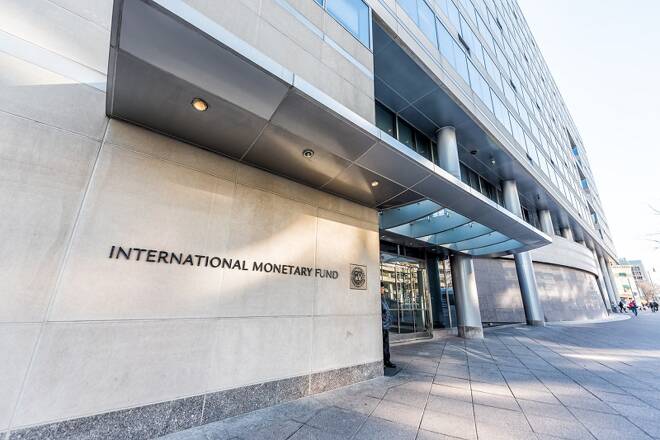Advertisement
Advertisement
Global slowdown is much closer than expected
Published: Jan 22, 2019, 15:39 GMT+00:00
European and Asian markets are losing ground on Tuesday due to fears around global slowdown. By the start of trading in the U.S., futures on the S&P 500 lost 0.4%, as much as they lost on Monday.
The main market mover was the IMF, that cut growth forecasts for the European and Chinese economies, and note that trade conflicts may cause further cuts in forecasts.
Among the important published data, the relatively good performance showed UK labor market, which helped the British pound to turn to mid-day growth and counter the overall negative sentiments on the global markets.
The average wages growth rate continues to gain momentum, rising to 3.4% y/y (including bonuses), which is the highest rate in more than 10 years. In addition, the unemployment rate fell back to 4.0%. Some concern is caused by the jobless claims increase, but this figure has remained stable since September.
The index of business sentiment in Germany also surprised by growth to -15, while it was expected to fall from -17.5 to -18.8. Europe’s locomotive seems to be picking up speed after a decline at the end of last year. However, the same cannot be said about the eurozone as a whole. The same index for common currency block remains at a minimum for the last 6 years. Such weak indicators for the eurozone clearly contradict the ECB’s stance to tighten policies later this year.
The European Central Bank representatives declare that the rate increase will happen no sooner than autumn 2019, but over time the chances will rise that the actual increase will happen much later than this date, which may put pressure on the euro in the near future.
This article was written by FxPro
About the Author
Alexander Kuptsikevichcontributor
Alexander is engaged in the analysis of the currency market, the world economy, gold and oil for more than 10 years. He gives commentaries to leading socio-political and economic magazines, gives interviews for radio and television, and publishes his own researches.
Advertisement
